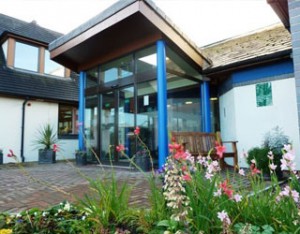I cannot tell you how many people, from all walks of life, have told me that one of the most difficult consequences of their illness and its treatment is their loss of confidence. It seems to make no difference if you are a woman or a man, old or young, have a high-powered demanding job or are retired. Cancer is a great leveller in this (as in many other) respects.
Of course one of the great problems with confidence is that no-one else can give it to you: you cannot get your doctor to write a prescription or buy it in a bottle from Sainsbury’s. You gain confidence by doing things and developing your sense of self confidence – but how do you start when you are not confident enough? It’s very easy to get trapped in a self-defeating and immobilizing loop from which there seems to be no escape. Exactly why this should happen is not entirely clear. Part of it is probably due to the sense of uncontrollability and the experience of powerlessness that cancer and its treatment engenders. Another factor that will undoubtedly contribute is the sense that the world is not a safe place any more – that you are vulnerable and at risk is brought home to you with a terrible certainty. This can manifest itself in a number of ways. For many people, the period immediately after treatment is marked by real feelings of vulnerability and of not wanting to stray too far from home or from the easy reach of medical and nursing care. Apart from the tiredness and fatigue, the feeling of not being entirely safe is powerful. There is also the sense that you cannot afford to look too far into the future, that planning too far ahead brings its own worries and fears. Your time horizon has been understandably limited to the next treatment, the next clinic appointment. You may have been living one day at a time. To switch suddenly to planning six months ahead seems to be a task too much. I must say that I regard the point at which someone can look forward to and plan a holiday is key sign of recovery. It doesn’t always happen quickly, and often not as quickly as people might like, but happen it does.
Building up gradually, one a step at a time, is the key to many aspects of the rehabilitation programme that will rebuild both physical and emotional strength – one step at a time. It is much better to set yourself an easy target which you know you can achieve and end up saying to yourself – ‘That was easy, I could have done more of that’ rather than going too far too fast and feeling that you have failed. Breaking down all the tasks of living into easily manageable chunks – a step at a time – is a well tried and tested route to success. In our enthusiasm we often forget just how complex and difficult this life business is, and it’s only when you have to get back on the roundabout that you realise this.
Sometimes I think that living is like competing in an Olympic event – but because we take it so much for granted we forget how demanding and tiring it can be, even at an ordinary, everyday level. Let’s take this analogy further and pretend that we are all Olympic sprinters – a rather far-fetched concept in my case, I should add – who have had a serious injury. We would not consider getting back to running the 100 metres until we had fully recovered. We would put ourselves on a gentle retraining programme, beginning with gentle walks rather than sprints. Getting back to living life should be done in the same way. A gentle build-up to the main event.
For full text http://www.cancercounselling.org.uk/northsouth/extra4.nsf/WebResHarvey
Dr Peter Harvey Consultant Clinical Psychologist Leeds Teaching Hospitals Trust



Leave a Comment